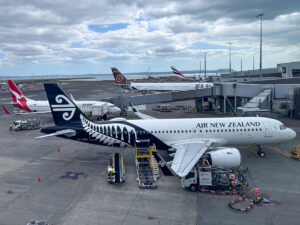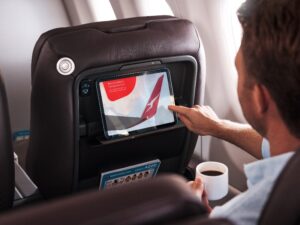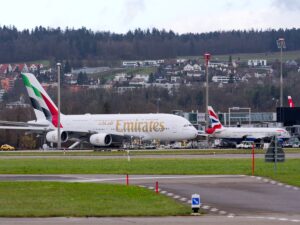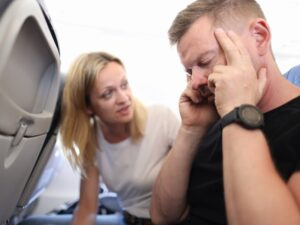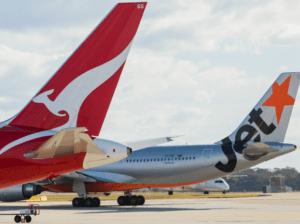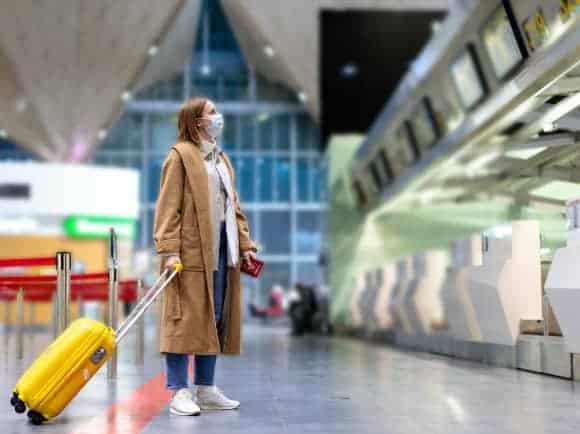 As the COVID-19 pandemic continues to run its course, governments and health authorities are pleading with the public to stay home if they feel unwell. Airlines too are advising passengers with cold and flu-like symptoms not to travel.
As the COVID-19 pandemic continues to run its course, governments and health authorities are pleading with the public to stay home if they feel unwell. Airlines too are advising passengers with cold and flu-like symptoms not to travel.
But if a passenger chooses not to take their booked flight because they feel unwell, they may not be entitled to a refund and could be charged extra to rebook for a later date. Travel insurance may not cover this, either.
Qantas, for example, advises passengers:
All customers are encouraged to download the Australian Government’s COVIDSafe app as part of improving the ability of health authorities to contain the spread of Coronavirus. In-line with public health advice, anyone with cold and flu like symptoms should stay at home.
Qantas and Jetstar are currently allowing passengers to change their flight once without paying a change fee. However, this only applies to domestic flights booked between 21 May and 30 June 2020, for travel between 12 June and 31 October 2020. Other bookings may not be eligible for the change fee waiver, meaning customers could be penalised for delaying their trip.
Furthermore, Qantas and Jetstar customers will still need to pay any fare difference when rebooking their flight. So, if the new flight costs more than the original airfare at the time of making the change – which is likely if the change is made at the last minute, i.e. because the passenger is unwell on the day of travel – the customer will need to pay more.
Qantas also will not provide refunds if a customer chooses not to travel because they are sick, unless they’ve purchased a more expensive flexible ticket. Passengers are only entitled to a refund on inflexible tickets if the airline has cancelled the flight.
The good news is that Qantas is allowing free cancellations and changes on Classic Flight Reward bookings made using Qantas points until 31 October 2020 – regardless of the booking or travel date. So, if you’re concerned that you may be unable to travel – e.g. because you may be sick on the day of the flight – you may prefer to redeem points for Qantas or Jetstar flights.
What about Virgin Australia and Rex?
We also asked Virgin Australia and Regional Express (Rex) whether they would rebook or refund sick passengers at no cost.
Virgin Australia will only refund passengers with a refundable ticket, and only if the ticket was purchased after 21 April 2020. (Passengers with tickets purchased before Virgin Australia entered administration are being offered restrictive “conditional credits” in lieu of a refund.)
Virgin customers may be entitled to a travel credit if they cannot travel, and the airline has been waiving change fees since 17 March 2020 so that customers can rebook for a later date. But any fare difference will still need to be paid, and the new fare will need to be the same or higher.
While this is Virgin’s current policy, staff at Virgin’s call centre could not guarantee that the change fee waiver would remain in place into the future, even for bookings made before any policy changes. A Virgin spokesperson pointed customers to their Coronavirus Customer Hub for more information about changing and cancelling flights.
Meanwhile, Regional Express (Rex) said that it would allow customers to rebook and consider refunds on a case-by-case basis.
“In the event that someone was denied check-in due to having a high temperature, we would allow them to place the ticket on hold and rebook for a later date. Any refund would be considered on a case by case basis,” a Rex spokesperson said.
Most travel insurance does not cover COVID-19
Normally, travel insurance is designed to cover out-of-pocket expenses if passengers become sick during their trip or have to cancel for medical reasons. But most travel insurers have been excluding coverage for COVID-19 since it became a “known event” in late January 2020.
Many travel insurers have also temporarily stopped selling new policies.
This isn’t really good enough
Most airlines are currently offering more flexibility than usual. That’s good.
But sick passengers with booked flights could still be penalised financially if they do the right thing and stay home because they have COVID-19 symptoms. Airlines are not offering refunds to sick passengers, and travellers may be required to pay a hefty fare difference if they change their flight to a later date – even if the airline tells them not to travel because they are unwell.
Some airlines, such as Rex, are now checking passengers’ temperatures when they check in for a flight. And some airports, including Canberra Airport, have installed body temperature screening as a safety measure against COVID-19. (Temperature scanning is ineffective at detecting asymptotic cases of COVID-19, but it is a start.)
Yet, most passengers with flu-like symptoms would already know that they are unwell before arriving at the airport. If airline passengers knew that they would not be penalised for missing their flight, they may be less likely to turn up at the airport in the first place. This leads to a better outcome for everybody, as no airline wants to be responsible for a passenger spreading COVID-19 (or any other infectious disease, for that matter) on one of its flights!
We’ve already seen cases in the United States where passengers have flown while waiting for COVID-19 test results. Airlines should be doing everything possible to encourage sick passengers to stay at home. They should not be financially penalising customers for choosing to do the right thing. Airlines around the world really need to rethink this.
Join the discussion on the Australian Frequent Flyer forum: Who covers the cost of missed flights if a pax is sick?
